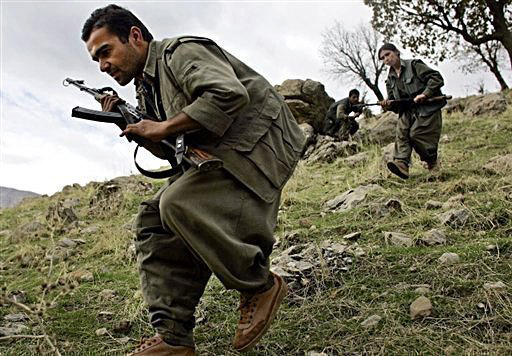The Turkish government should keep its reforms going to revive the peace process as the fears of nationalists' reaction is overestimated, according to a report released by the International Crisis Group, the Hürriyet Daily News reported.
Turkish politicians are overestimating the potential Turkish nationalist backlash toward democratic reforms that would benefit Kurds and many others in Turkey, according to a report released by the International Crisis Group today.
The report titled "Crying 'Wolf': Why Turkish Fears Need Not Block Kurdish Reform" said Turkish politicians were using fear of a nationalist backlash to justify their hesitation to address reforms that would please Kurdish citizens.
The government's steps on linguistic and cultural rights for Kurds faced minimal public reaction, said the report, adding that most mainstream Turks could embrace democratic reforms despite the hardline discourse of the political opposition.
"The implacable 'grey wolf' of Turkish nationalist legend is increasingly more of a figment of politicians' imagination than a reality in the population at large. Both the Turkish government and the Kurdish movement have concerns about the peace process. It will take time and a longer period of zero casualties to dissolve fears. But a peace deal, anchored by new mutual understanding, can be achieved with determined leadership, consistent policies, conciliatory rhetoric, readiness to compromise, willingness to bring rights and local participation into governance, a revamped education system and new emphasis on common history that includes all viewpoints," said the report.
The report also cited what strategy the outlawed Kurdistan Workers' Party (PKK) and the Turkish government should have in order to revive stalled peace talks.
The PKK needs to do more "to convince Turks it wants a compromise peace" while also calling on the government to spell out a comprehensive conflict-resolution strategy, including democratic reforms, "not as a concession" to militants but because they would benefit everyone in the country, said the report.
"Turkish leaders should explain to the public the advantages of the road to an enduring peace and refrain from a mission impossible of outflanking Turkish ultranationalists with moves to the right and anti-Kurdish-movement rhetoric," said Hugh Pope, the Crisis Group's deputy director for Europe and Central Asia. "The need to cater to an implacable 'grey wolf' of Turkish nationalism has become a fearful reflex among politicians but doesn't reflect mainstream reality in the population at large," he said.
The ruling Justice and Development Party (AKP) has broken taboos in its outreach to Turkey's Kurds, said the report, while citing several recommendations for the government.
The report advised the government to pursue democratic reforms by committing to the full use of mother tongues in education, ensuring that the definition of Turkish citizenship in a new Constitution is clearly not based on any single race, ethnicity, language or religion; leading a countrywide debate about local government, as well as lowering the 10 percent electoral threshold for parties to enter Parliament to at least 5 percent.
The report recommended the government use language in public statements that de-demonizes Kurdishness and reform curricula in the education system.






